In recent years, the healthcare landscape has experienced a transformative evolution, with technology playing an increasingly pivotal role in shaping patient outcomes. One of the most exciting developments is how artificial intelligence helps physicians not only diagnose conditions faster but also make more accurate and nuanced clinical decisions. As the integration of AI into medical practices continues to accelerate, both practitioners and patients stand to benefit from innovations that were once unimaginable. The synergy between human expertise and machine learning models marks a critical turning point in modern medicine, one that holds the potential to revolutionize diagnostics and patient care at an unprecedented scale.
You may also like: Revolutionizing Healthcare: How AI in Medicine Is Enhancing Diagnosis, Treatment, and Patient Outcomes
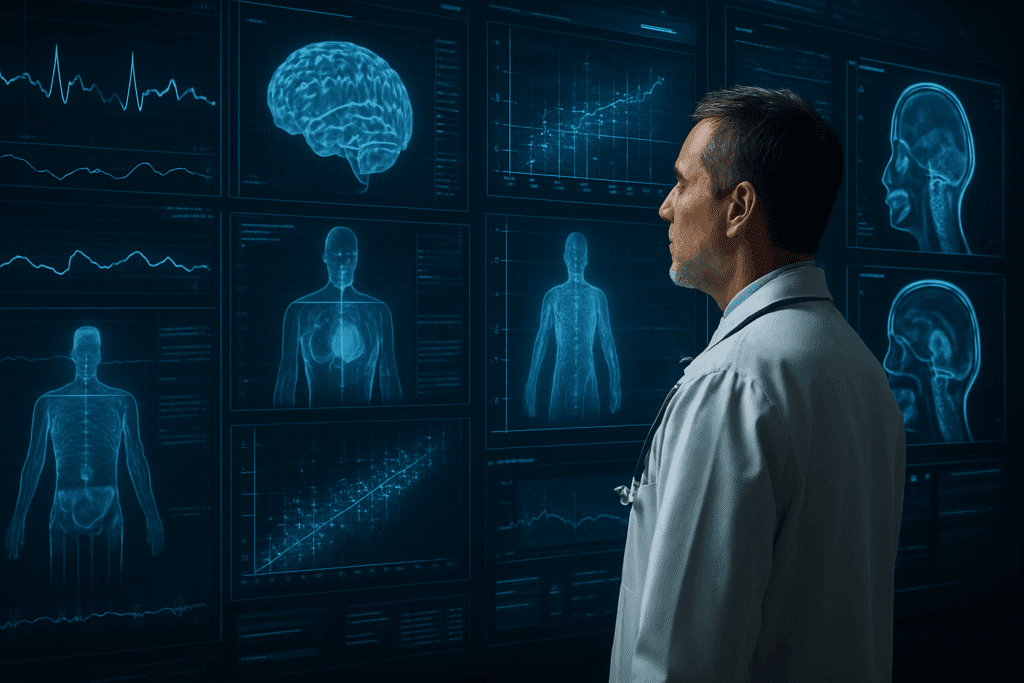
The Growing Importance of Artificial Intelligence in Medicine
The integration of artificial intelligence (AI) into the medical field has fundamentally reshaped the diagnostic process. AI-driven tools and platforms have emerged as essential assets, assisting physicians with image analysis, pattern recognition, and even predictive analytics. These technologies empower healthcare professionals to detect diseases earlier and with greater accuracy. As medical data becomes increasingly complex, the role of AI becomes even more vital, offering a scalable solution to manage and interpret vast volumes of patient information. Hospitals and clinics worldwide are investing heavily in AI systems, recognizing that the future of effective healthcare lies in harnessing the power of intelligent algorithms.
What sets AI apart from traditional diagnostic tools is its capacity to learn and adapt over time. Machine learning models, when trained on extensive datasets, can identify subtle patterns that might elude even the most experienced human eye. In oncology, for instance, AI applications have demonstrated remarkable proficiency in detecting early-stage cancers through imaging technologies. Similarly, AI algorithms can flag abnormalities in electrocardiograms (ECGs) and radiographs, assisting cardiologists and radiologists in making swift, informed decisions. As the evidence base grows, so does the confidence among physicians in relying on AI-assisted diagnostic tools, cementing their place as indispensable assets in contemporary medical practice.
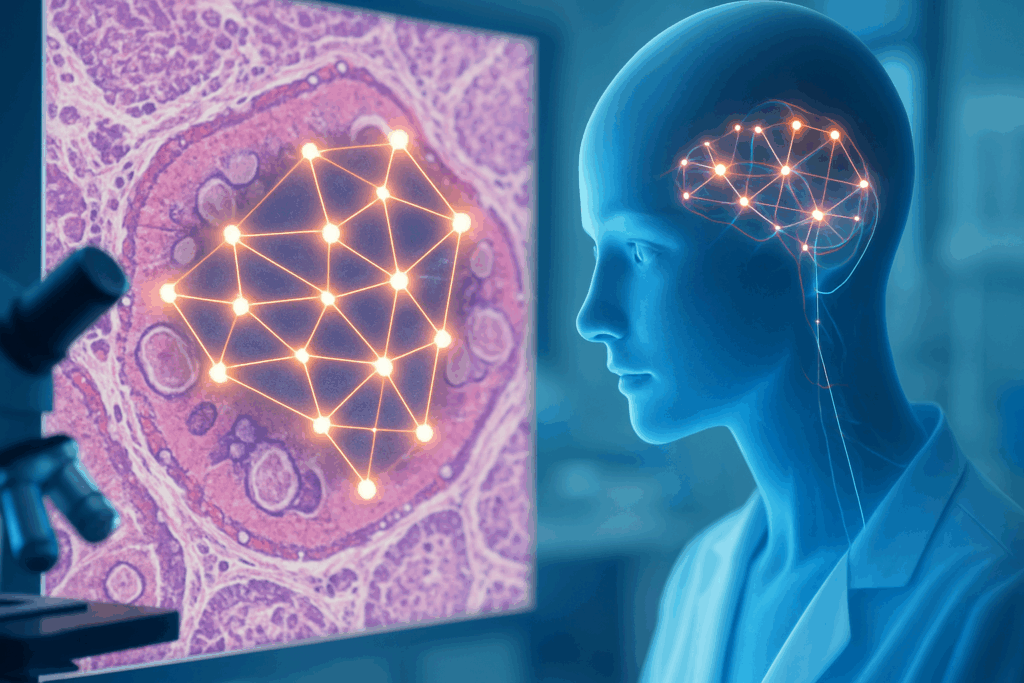
How Artificial Intelligence Helps Physicians Detect Diseases Early
One of the most profound ways artificial intelligence helps physicians is by enabling early detection of diseases, often before symptoms become clinically apparent. Early diagnosis is crucial in managing conditions such as cancer, cardiovascular diseases, and neurodegenerative disorders, where timely intervention can significantly alter the disease trajectory. AI-powered imaging tools, for instance, can identify minute changes in tissues or organs that a human observer might miss. These advanced algorithms analyze thousands of images to distinguish between benign and malignant lesions with impressive precision.
In addition to imaging, AI is transforming pathology. Digital pathology platforms equipped with machine learning capabilities can scan tissue samples and highlight areas of concern with remarkable speed and accuracy. Such systems reduce the workload on pathologists and minimize human error, ensuring that patients receive a timely and accurate diagnosis. Moreover, AI models are being trained to integrate genetic, proteomic, and metabolic data, offering a holistic view of a patient’s health status. By combining multiple data sources, AI can uncover hidden correlations that may point to the onset of a disease long before traditional diagnostic methods would.
In primary care settings, AI-driven symptom checkers are providing physicians with valuable decision-support tools. These applications, while not replacing the clinical judgment of a doctor, serve as valuable adjuncts in narrowing down differential diagnoses based on reported symptoms and clinical findings. As AI for physicians becomes more refined, its potential to reduce diagnostic errors and improve patient outcomes becomes increasingly evident.
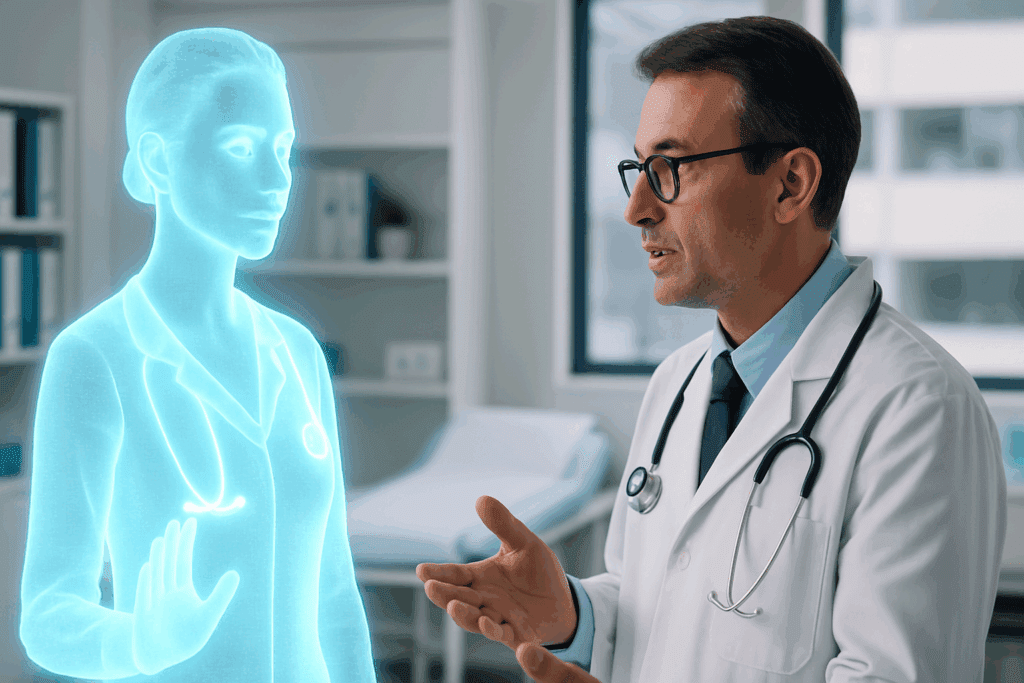
The Evolution of Artificial Intelligence Doctor Assistants
The concept of an artificial intelligence doctor was once confined to the realm of science fiction. Today, AI doctor assistants are a tangible reality, augmenting the capabilities of human physicians in remarkable ways. Virtual medical assistants powered by AI are capable of triaging patient concerns, scheduling appointments, and even offering preliminary medical advice based on evidence-based protocols. These AI systems help streamline administrative tasks, freeing up physicians to focus more on complex clinical decision-making and direct patient care.
Beyond administrative functions, AI doctor assistants are proving invaluable in clinical settings. Some AI platforms can analyze patient records, laboratory results, and imaging studies to provide physicians with evidence-based treatment recommendations. In intensive care units (ICUs), AI systems continuously monitor patient vitals and alert medical staff to early signs of deterioration, enabling prompt interventions that can save lives. Furthermore, AI is playing an instrumental role in personalized medicine, tailoring treatment plans to the individual genetic profiles and lifestyle factors of patients.
The best AI for doctors right now offers more than just diagnostic support; it acts as a collaborative partner, enhancing the quality of care delivered. AI tools can assist physicians in formulating treatment plans, predicting potential complications, and optimizing medication regimens. As natural language processing (NLP) technology advances, AI systems are also becoming proficient in extracting meaningful insights from unstructured data within electronic health records (EHRs), making them even more indispensable to the modern healthcare ecosystem.
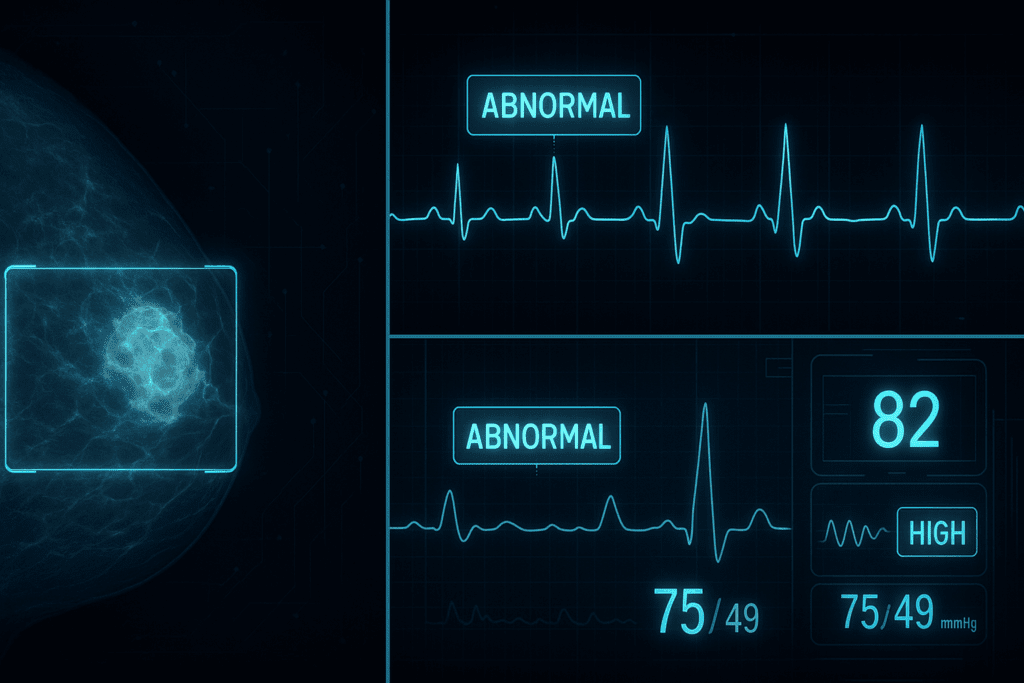
Breakthrough Case Studies: How Artificial Intelligence Helps Physicians Save Lives
Numerous case studies demonstrate how artificial intelligence helps physicians deliver life-saving care. For example, in the realm of oncology, researchers have developed AI algorithms that can detect breast cancer in mammograms with accuracy comparable to, and sometimes exceeding, that of expert radiologists. These AI models were trained on vast datasets comprising millions of images, enabling them to recognize subtle indicators of malignancy that might go unnoticed.
In cardiology, AI-driven platforms have shown impressive success in identifying atrial fibrillation from standard ECGs, even when patients are asymptomatic. Early detection of such arrhythmias allows for timely intervention, significantly reducing the risk of stroke and other complications. Moreover, AI models have been instrumental in predicting sepsis in hospitalized patients by analyzing trends in vital signs and laboratory data. Early recognition of sepsis, a life-threatening condition, dramatically improves survival rates, highlighting the life-saving potential of AI integration in medical practice.
Similarly, during the COVID-19 pandemic, AI tools were rapidly adapted to assist in triaging patients, predicting disease severity, and even identifying potential therapeutic agents. AI’s ability to rapidly synthesize emerging data proved invaluable during a time of global health crisis, reinforcing its critical role in supporting physicians across a wide spectrum of specialties.
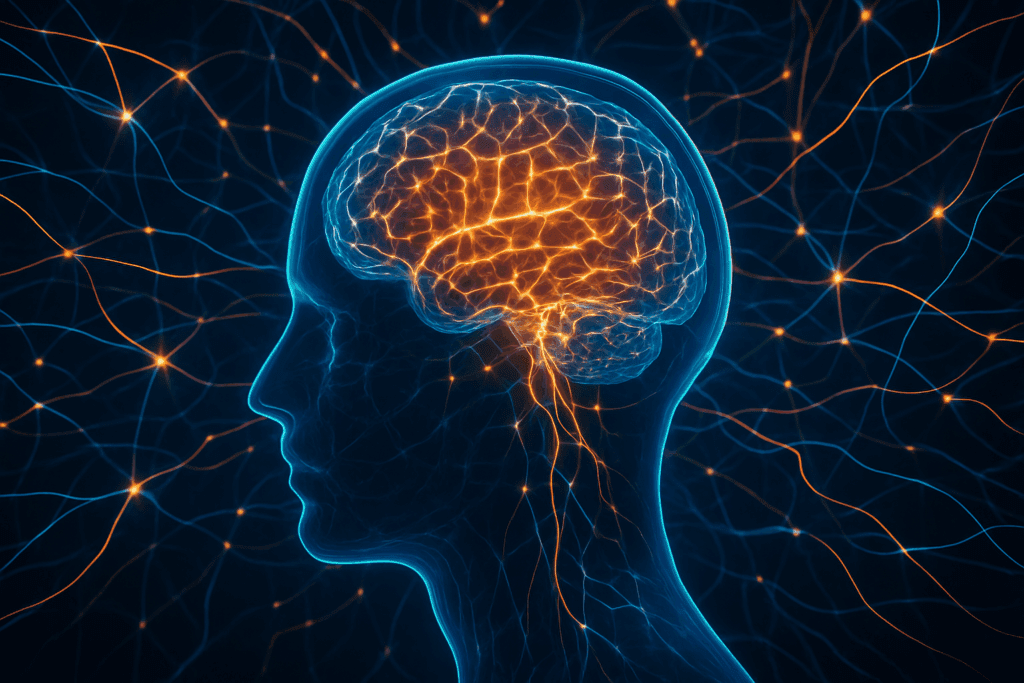
Key Technologies Behind AI for Physicians
Understanding the technologies that underpin AI for physicians offers insight into its transformative potential. Machine learning, particularly deep learning, is at the core of many medical AI applications. Deep learning involves training neural networks to recognize complex patterns in data, such as distinguishing between healthy and diseased tissues in medical images. The use of convolutional neural networks (CNNs) has been particularly effective in radiology and pathology.
Natural language processing (NLP) represents another crucial technology, enabling AI systems to comprehend and generate human language. In healthcare, NLP is used to extract structured information from clinical notes, improving documentation and facilitating research. NLP-driven tools can assist in clinical coding, summarizing patient records, and even participating in patient-provider communications through chatbots and virtual assistants.
Another critical technology is reinforcement learning, where AI systems learn optimal actions through trial and error within a simulated environment. In medical decision-making, reinforcement learning can be used to develop treatment strategies that maximize patient outcomes based on dynamic clinical data. Together, these technologies form a powerful toolkit that allows AI to assist physicians in increasingly sophisticated ways, heralding a new era of data-driven, patient-centered care.
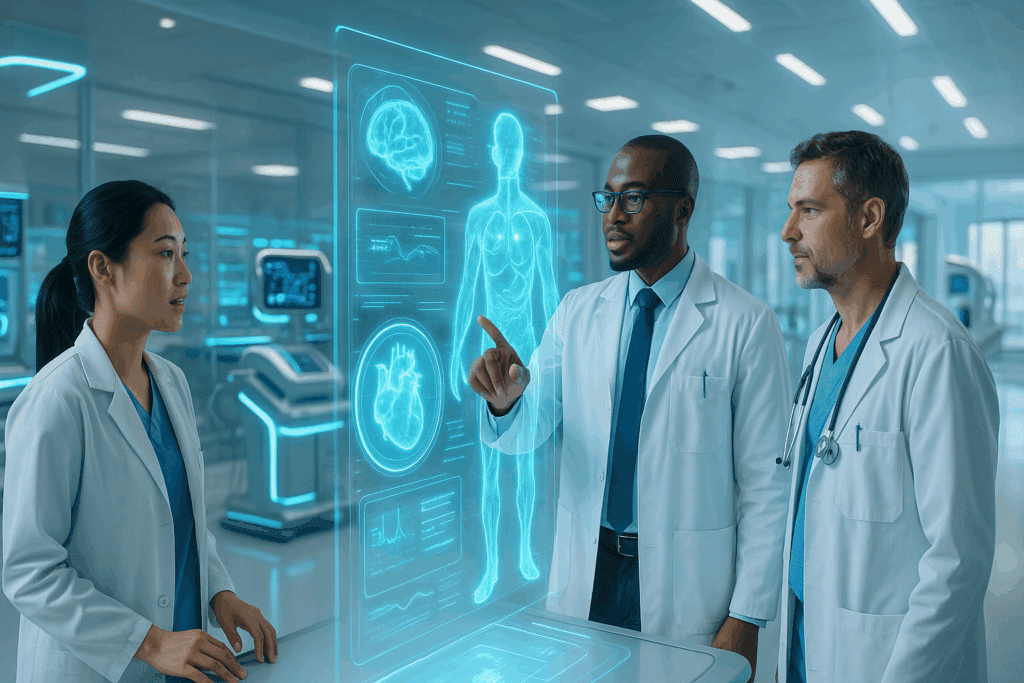
Artificial Intelligence Helps Physicians Make Diagnoses Faster and Smarter
Speed and accuracy are twin pillars of effective diagnosis, and artificial intelligence helps physicians enhance both dimensions simultaneously. Traditional diagnostic processes can be time-consuming, often involving multiple rounds of testing and specialist consultations. AI streamlines this workflow by rapidly analyzing data and highlighting probable diagnoses, allowing physicians to arrive at conclusions more swiftly. This not only reduces patient anxiety but also enables quicker initiation of appropriate treatment.
The power of AI lies in its ability to process vast amounts of information in a fraction of the time it would take a human. For example, AI algorithms can scan thousands of radiographic images in minutes, flagging abnormalities for further review by radiologists. This expedites the diagnostic process without compromising thoroughness or accuracy. In laboratory medicine, AI-driven platforms can analyze complex datasets, such as genomic sequences or biomarker profiles, to identify disease signatures that would otherwise require painstaking manual interpretation.
Moreover, AI enhances diagnostic intelligence by continuously learning from new data. As AI systems are exposed to more clinical cases, they refine their predictive models, improving diagnostic accuracy over time. This dynamic learning capability ensures that AI remains a cutting-edge tool for physicians, capable of adapting to emerging medical knowledge and changing disease patterns. By making diagnoses faster and smarter, AI helps physicians deliver timely and precise care, ultimately improving patient outcomes and optimizing healthcare resource utilization.
Innovations in AI for Doctors: Transforming Patient Care
The landscape of medical innovation is rich with groundbreaking applications of AI for doctors, each contributing to a more efficient and patient-centered healthcare system. One notable innovation is the development of AI-driven decision support systems that assist physicians during clinical encounters. These systems analyze patient data in real-time, suggesting potential diagnoses, recommending diagnostic tests, and even proposing evidence-based treatment options. By serving as a second set of eyes and a source of up-to-date medical knowledge, AI tools empower physicians to make better-informed decisions at the point of care.
In surgical fields, AI-assisted robotics is enhancing precision and minimizing risks. Robotic surgery platforms, guided by AI algorithms, enable surgeons to perform intricate procedures with greater accuracy and smaller incisions, leading to faster recovery times and improved patient outcomes. AI is also making strides in anesthesiology, where predictive analytics tools assess patient risk factors and help anesthesiologists tailor anesthesia plans to individual needs.
Furthermore, AI is revolutionizing chronic disease management by enabling remote monitoring and early intervention. Wearable devices equipped with AI algorithms can track vital signs, detect anomalies, and alert healthcare providers when intervention is needed. This proactive approach helps prevent complications and reduces hospital readmissions, emphasizing the role of AI in promoting long-term health and wellness.
The Role of Artificial Intelligence Help Physicians to Deliver Personalized Medicine
The vision of personalized medicine, where treatments are tailored to the unique genetic and environmental factors of each patient, is becoming a reality thanks to how artificial intelligence helps physicians. AI systems excel at integrating and analyzing diverse datasets, from genomic sequences to lifestyle information, to generate personalized risk assessments and treatment recommendations. This individualized approach enhances therapeutic efficacy while minimizing adverse effects.
In oncology, AI-driven tools are identifying genetic mutations that can be targeted with specific therapies, ushering in an era of precision oncology. Similarly, in pharmacology, AI models are predicting how patients will metabolize drugs based on genetic markers, allowing for more accurate dosing and reducing the risk of adverse drug reactions. These advancements reflect the profound ways in which AI is enhancing the personalization of medical care.
By harnessing the power of AI, physicians can move beyond one-size-fits-all treatment protocols to deliver care that is finely attuned to each patient’s unique profile. This shift toward personalized medicine represents a paradigm change in healthcare, emphasizing prevention, early intervention, and holistic well-being.
Frequently Asked Questions About How Artificial Intelligence Helps Physicians
1. How does artificial intelligence help physicians handle rare diseases?
Artificial intelligence helps physicians manage rare diseases by providing them with access to expansive databases that include uncommon cases from around the world. This broad scope allows AI to identify obscure patterns and suggest potential diagnoses that even experienced clinicians might overlook. Emerging platforms specializing in rare disease recognition use machine learning models trained on genomics and case reports to support physicians when conventional diagnostic pathways fall short. Furthermore, AI-driven diagnostic engines can recommend tailored testing strategies, reducing the diagnostic odyssey that many rare disease patients endure. By expanding physicians’ access to global medical knowledge, AI offers hope to patients who might otherwise remain undiagnosed for years.
2. What role does AI play in improving physician training and education?
AI for physicians extends beyond patient care into the realm of medical education, transforming how doctors learn and refine their skills. Simulated clinical environments powered by AI create realistic scenarios where physicians can practice diagnoses and treatment planning without risking patient safety. These simulations adapt dynamically to the learner’s choices, providing tailored feedback and highlighting areas for improvement. Natural language processing tools help physicians quickly analyze research papers and guidelines, staying current with the latest advances. Overall, the integration of AI into medical education ensures that physicians continually enhance their clinical acumen in a fast-evolving healthcare landscape.
3. How does artificial intelligence doctor technology impact patient trust?
The emergence of artificial intelligence doctor technologies has prompted new considerations regarding patient trust. While many patients appreciate the efficiency and precision that AI systems offer, concerns about transparency and empathy remain. Building trust requires a collaborative model where AI assists but does not replace human interaction. Physicians who integrate AI tools transparently, explaining how these technologies support care decisions, tend to maintain higher levels of patient trust. Future advancements will likely focus on making AI outputs more interpretable for patients, fostering a stronger doctor-patient bond supported, rather than overshadowed, by technology.
4. What are the emerging trends in personalized healthcare supported by AI?
Personalized healthcare is entering an exciting new era, where AI tailors medical interventions based on individual biological and lifestyle data. AI platforms now predict disease susceptibility using genetic, environmental, and behavioral inputs, allowing physicians to design proactive health management plans. Additionally, wearable devices integrated with AI monitor real-time health metrics, alerting users and physicians to subtle changes that might precede illness. The best AI for doctors right now includes platforms capable of adjusting medication dosages dynamically based on metabolic changes. As this technology matures, healthcare will increasingly shift from reactive treatment to proactive wellness optimization.
5. How does artificial intelligence help physicians address diagnostic burnout?
Artificial intelligence helps physicians combat diagnostic burnout by automating time-consuming tasks and reducing cognitive load. Complex image analyses, tedious record-keeping, and initial data interpretation are now frequently handled by AI, freeing physicians to focus on nuanced clinical reasoning and patient interaction. Moreover, AI tools help prioritize cases based on urgency, preventing diagnostic fatigue in high-volume practices. Emotional burnout is also mitigated when AI provides decision support, enhancing physicians’ confidence during challenging diagnostic dilemmas. By reallocating mental bandwidth towards humanistic aspects of medicine, AI indirectly supports physician well-being.
6. How are rural and underserved communities benefiting from AI for physicians?
Rural and underserved areas are seeing significant benefits from AI for physicians, narrowing the healthcare disparity gap. Telemedicine platforms powered by AI facilitate remote consultations, allowing expert opinions to reach patients in isolated regions. Diagnostic AI tools, when deployed locally, empower general practitioners with specialist-level insights, reducing the need for patient transfers to distant urban centers. Moreover, predictive analytics help resource-limited clinics anticipate disease outbreaks and optimize their interventions. These advancements demonstrate how AI democratizes access to high-quality medical care, irrespective of geographic constraints.
7. How does artificial intelligence help physicians in managing chronic diseases?
Artificial intelligence helps physicians manage chronic diseases by enabling continuous patient monitoring and proactive intervention. AI algorithms embedded in wearable technology track blood glucose, blood pressure, and cardiac rhythms, providing actionable insights before symptoms escalate. Decision support systems remind patients about medication schedules, dietary choices, and exercise regimens, enhancing adherence to treatment plans. AI platforms also stratify patients based on risk levels, allowing physicians to allocate attention where it is most urgently needed. By fostering sustained engagement and early warning capabilities, AI significantly improves the long-term management of chronic conditions like diabetes and hypertension.
8. What are the ethical challenges associated with artificial intelligence doctor tools?
While artificial intelligence doctor systems offer tremendous promise, they also introduce important ethical considerations. Data privacy remains a major concern, particularly when sensitive medical information is processed by third-party platforms. Additionally, biases in training datasets can lead to unequal outcomes across different patient populations, necessitating vigilant oversight and continuous model refinement. The question of accountability is also paramount: when AI errors occur, establishing responsibility between software developers and healthcare providers is complex. Ensuring that AI remains a supportive tool rather than an authoritative decision-maker is key to maintaining ethical integrity in clinical practice.
9. How does the best AI for doctors right now facilitate interdisciplinary collaboration?
The best AI for doctors right now serves as a catalyst for interdisciplinary collaboration by synthesizing information across multiple specialties. AI platforms integrate data from radiology, pathology, genomics, and clinical records, presenting a unified view that fosters collaborative diagnosis and treatment planning. For example, oncologists, radiologists, and geneticists can use AI-driven tumor boards to develop comprehensive cancer care strategies. These collaborative environments, supported by AI’s analytical prowess, lead to more holistic and patient-centered care. As AI capabilities expand, interdisciplinary collaboration will become even more seamless, breaking down traditional silos within medicine.
10. What does the future hold for AI for doctors and healthcare innovation?
The future of AI for doctors is poised to be transformative, blending human empathy with machine precision to create unprecedented standards of care. Advances in explainable AI will make algorithmic recommendations more transparent, fostering deeper trust between patients, physicians, and technology. Additionally, AI will likely play a central role in public health initiatives, identifying emerging health threats and guiding population-level interventions. Augmented reality (AR) and AI integrations may assist surgeons with real-time overlays during complex procedures, further enhancing surgical precision. Ultimately, as artificial intelligence helps physicians evolve their roles from diagnosticians to health strategists, the doctor-patient relationship will deepen, with technology enriching rather than replacing human connection.
Conclusion: The Transformative Impact of Artificial Intelligence in Modern Medicine
As we look toward the future, it is clear that artificial intelligence will continue to redefine the role of the physician and the possibilities of patient care. The ways artificial intelligence helps physicians are already reshaping how diagnoses are made, treatments are delivered, and patient outcomes are improved. With ongoing advancements in machine learning, natural language processing, and predictive analytics, AI will become an even more integral part of the healthcare ecosystem. Embracing these technologies responsibly and ethically will ensure that the full potential of AI is realized, ultimately leading to a more precise, efficient, and patient-centered model of healthcare.
Further Reading
AI scribe saves doctors an hour at the keyboard every day
How Physicians Can Ethically Utilize Artificial Intelligence in the Medical Field


